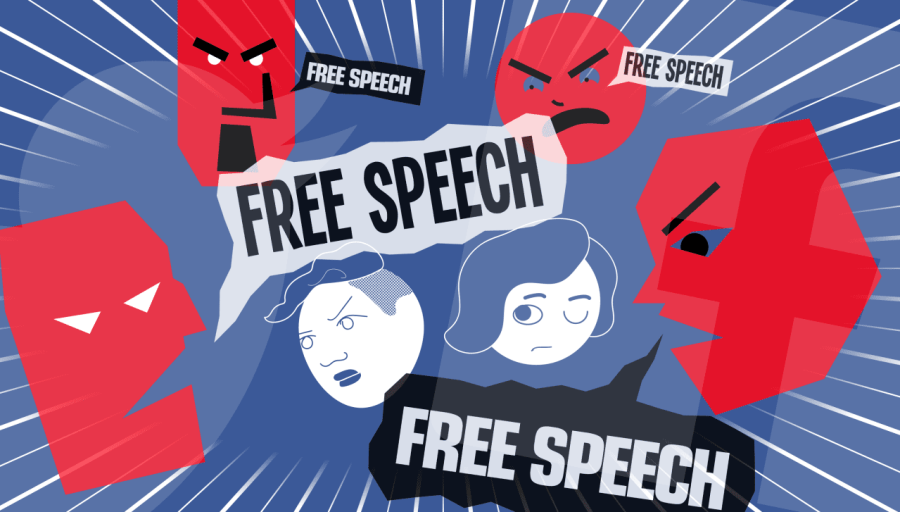Whether it be a traveling “freak show” from the mid-1800s or a presidential campaign run by a reality-TV star in 2016, Americans have always prioritized the most eye-catching content, no matter how sensational. In order to capitalize on this, major media news outlets interview individuals who represent a niche sector of the sociopolitical spectrum that generally harbor bigoted ideologies. As a result, mainstream media as a whole has become a mechanism for gaining more views at the risk of propagating harmful views. Mainstream media should not call for a removal of either conservative or liberal voices, but it cannot give a platform to those whose opinions work to disenfranchise individuals based on characteristics beyond their control. Rather, news outlets must recognize that by giving a platform to bigoted ideologies, more harm is committed than good.
This happened with Vice Media, a left-leaning news media company. Less than a week after protests turned violent last August in Charlottesville, VA, Vice put out “Charlottesville: Race and Terror.” The documentary centered around Elle Reeve as she followed neo-Nazis during the event. While its intention was to expose these people as fostering hate and divisiveness, the manner in which the piece was created did the opposite. This piece not only introduced neo-Nazis to a national platform but essentially humanized their ideology by putting faces to hate speech.
Vice is not the only media company guilty of giving a platform to hate groups. From ABC to MSNBC, it is hard to tune into a news broadcast without seeing an interview with someone holding harmful social views. When NBC allowed Megyn Kelly, a conservative talk show host, to interview blatant conspiracy theorist Alex Jones, they were telling millions of marginalized people that gaining a high number of views is more important than refusing to normalize his brand of fear mongering. Media outlets abound with examples like these that cater to a portion of the population who believe that freedom of speech mandates that media companies give a voice to any and all, regardless of how malicious their views are.
These instances are symptoms of a larger disease, one spread by a number of spurious arguments. Proponents of a “free market of ideas” argue that, if you don’t like what you’re seeing on TV, you can just turn it off. Unfortunately, it is not that easy. While this may be a viable solution for those who already recognize the harm of these ideologies, for the average American bigot, seeing someone who shares their ideologies validates their opinions, even though the purpose of conducting these interviews is to expose these viewpoints as toxic. Political commentators threaten that this will create a niche, radical group of bigots who are even more emblazoned than before. However, the opposite is true. By not giving a platform to bigotry, hate harboring individuals will likely diminish because they are pushed to the periphery of political discourse where their potential to inflict harm is limited.
An even more common argument against refusing to validate harmful socially conservative viewpoints is that this an infringement of the First Amendment. We must remember that free speech is technically only guaranteed by the government. Freedom of speech is a right that does not mandate that others give someone’s speech a platform. If a news organization does not wish to interview someone, then it is not obligated to do so. This is already the standard practice for media outlets; news organizations filter information from all sources to determine what is and isn’t newsworthy to the general public. What criteria media outlets use to make this decision may vary, but conscientiousness is an inherent responsibility for every news company.
But, as some neoconservative proponents would argue, there is a need for a diverse range of opinions from all corners of the political spectrum to be heard. While true, there is a difference between having a diverse range of opinions and sharing every opinion. Political discourse, however, can still carry on without the contributions of extremist groups. Just because someone finds a way to rationalize their opinion does not mean that it offers legitimate solutions to political problems. The mainstream media has a responsibility to utilize its freedom of choice to decide whose opinions to validate.
The United States is grounded in the principle that everyone is created equal. With that in mind, if we are going to pride ourselves on this facet, then we must not allow opinions that take away this fundamental freedom from anyone. We owe it to those who have been marginalized to create a news media environment that holds no room for opinions rooted in hate.








